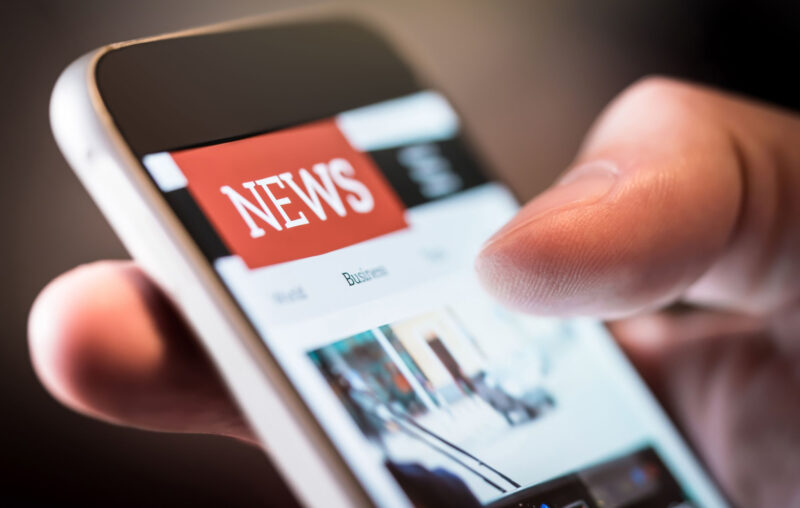How to Rationally Consume News

Twitter’s “Muted Words” function is a godsend.
For a long time, every major event that takes place in the world — think wars, elections, politicking — has quickly generated a half-dozen new words that I ask Twitter to block from my view: “Gaza” and “Hamas” are the latest additions; “the Donald” and all versions of “election” have been there for a long time.
Because of this, two beneficial things have happened to my use of this information-sharing platform. First, I don’t see the extreme news and commentary splashed across most people’s feeds when I mindlessly scroll or intentionally look for something on Twitter. Whatever may be going on, it doesn’t distract me or interrupt whatever I’m doing. Second, the feed itself becomes “boring.” There’s nothing juicy there, aside from some economists conversing, a new book release, or a new long-form article by a person I admire that I can bookmark to read later.
And so I quickly leave the informational cesspit and return to the living, or value creation, of real life.
The Nature of News and Information
In the last century or two, the amount of newly created information on a daily basis exceeded what anyone could possibly attempt to consume. For those of us who love reading, that’s usually a tragic observation. I will never be able to read all that I would want to.
On a more personal level, it now means we have to safeguard and discipline that which enters our minds. Just like shopping in an oversized mall or grocery store with tens of thousands of products, we must somehow navigate the world of information. Allowing yourself to be highjacked by the algorithms or the eyeball-chasing news coverage constantly featuring some BREAKING story leaves you swooshing around aimlessly, mentally exhausted, your limbic system triggered and cortisol levels spiking.
A decade ago, Rolf Dobelli, author of The Art of Thinking Clearly sounded the alarm. An extract from The Guardian reads:
most of us do not yet understand that news is to the mind what sugar is to the body. News is easy to digest. The media feeds us small bites of trivial matter, tidbits that don’t really concern our lives and don’t require thinking. That’s why we experience almost no saturation.
Longer-form content, like podcasts or magazines or books, explains Dobelli, “require[s] thinking,” where you thoughtfully engage with the intellectual material rather than being captured by the shocking visuals hurled at you.
The instantly available information — the Twitter videos or the hyped-up reporters spewing unverified and undigested information — is a hyper-novelty for humans. We emphatically did not have access to that kind of messaging overload a century ago, and our psyches aren’t equipped for it. Think of imagery from an earthquake or other natural disaster, starving kids, or any other awful thing. Repeat for the seven o’clock newscast every day and suddenly your view of the world has shifted — disastrously so. Optimists and human-progress people like Johan Norberg and Hans Rosling have pointed to this for years. The vast majority of people overestimate harms (like deaths from terrorist attacks or natural disasters) and underestimate slow, decaying problems (like the federal debt or our lifestyles’ impact on well-being and longevity), as well as the many things that constantly get better.
“News leads us to walk around with the completely wrong risk map in our heads,” writes Dobelli.
Some years ago I heard a provocative speech at a British free market institute about why all news is wrong. It wasn’t a conspiratorial hit on “Rupert Murdoch” or “global elites,” but a more genuine assessment of the nature of communications in the moment. It’s almost impossible to figure out which parts of any event are important as it takes place.
First, the information then available (and, with purpose, curated by the journalist) may be wrong. To hold your attention, the journalist got a juicy quote from a bystander or some pointy-hat with an academic degree. Often, it turns out, a lot of initially reported information isn’t correct — but nobody bothers with checking the correction updates a day, week, or year later. Nuance doesn’t sell.
Second, and more devastatingly, information often turns out to be irrelevant. What was initially reported on was not what turned out to be the critical bit of the event. Fair enough, we can only know that with hindsight… which is the whole point! Report and inform yourself — carefully, deliberately — and only once all (or at least most) facts are already on the table.
As an example, I recall the presenter used some criminal case — perhaps shootings, looting, robbery, or terrorist attacks. In the heat of the moment, nobody can be quite sure of what actually happened. Who fired on whom? Self defense? Is the person in custody the perpetrator, the fall guy, or some random bystander who happened to be caught up in the events?
These questions are precisely why we have a court system of combative proceedings, with standardized rules for evidence and guilt determined by a jury of the defendant’s peers. If indeed it were important for the general public to know about some such event taking place — which I seriously doubt — it’d be better for them to just read the court proceeding documents twelve months later, rather than sitting glued to their screens, listening to some journalist excitedly sharing the latest development in a still-unfolding story.
Natural disasters happening in this or that far-away country to which you lack connections isn’t necessarily something you need to pollute your brain with. Small-scale wars between tribes or larger ones between nation-states (or aspiring nation-states) are similarly irrelevant. Are there bombs dropping on your neighborhood? Is there anything you can do to stop them?
In 99 percent of the cases, that answer is going to be no. Those are all tragic and horrific things, but outside of most people’s control or influence. All you do is slowly reinforce the basic outlook that everything is bad and dangerous and getting worse. It’s not important to know about which group attacked which nation-state, which politician promised to use the state in some specific way, or which people in far-off countries are “peacefully protesting.”
A Facebook friend recently reflected on how his first week without a smartphone had changed the conversations he had with people: “In the absence of media,” he said, “much of my news is now received by word of mouth. I’m more curious about things, because I don’t know them.”
Strategies to Guard Your Mindspace
I select my information with purpose. I guard what information I’m exposed to extremely carefully, filtering out and screening away that which doesn’t matter or doesn’t interest me.
Most information is noise, and the human brain isn’t equipped for the overload that the modern world throws at us. Don’t watch the news, don’t follow politics, don’t argue back at clowns in the political sphere. Basically, don’t clutter your brain with unnecessary stuff. If you must consume news, slow it down by listening to thoughtful, long-form podcasts, watching documentaries, or reading books and magazine articles.
I offer one final piece of anecdotal evidence to showcase how this is working for me. One chilly September day last year, I received a call from my father — a standard, what’s-up/checking-in-on-you call. He was six time zones ahead of me at the time, and about to go to bed. He mentioned casually that he had gone voting earlier in the afternoon:
“Wait, there’s an election on…?” I asked. And instead of being mortified at my flailing civic duty, I laughed. Honestly, I had no idea it was election time, nor that the ballot box was providing my native country’s political theater that day. Before he could pollute my mind with more information, I quickly instructed my father not to tell me who did(n’t) win.
To this day, I’m still not sure which color of nonsense rules the Swedish apparatus of state. It just doesn’t matter.
Instead, fill your mind with the things you want, not the things the algorithms or news channels want.










